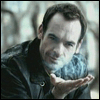It’s Monday morning, December 31st, 2012. Do you know what your writing plan for 2013 is? I recently read an article by Dean Wesley Smith on the topic, and his take(s) on it were (1) clearly for full-time writers, and, also, (2) insane.
http://www.deanwesleysmith.com/?p=8367
But I am not here to be his poster girl for failure, making excuses why I can’t follow any of his suggested plans (words per hour? Seriously? How can anyone even have a ballpark figure of “how many new words they can write per hour” when no hour is ever equal to any other in (a) state of mind (b) state of life (c) level of distractions (d) level of carpal tunnels syndrome… Um, what?)
Word count goals, at any rate, never functioned for me. I can set a goal of say, 250 words a day, but quality and quantity are not the same thing–I mean how many of us have writtenshit during NaNo just to “win” and come out of that with only a few scraps we can actually use?
Smith has one suggestion that makes more sense to me–a “production goal.” Instead of counting words, you set a goal of what you want to produce. This, of course, depends on having not just an end-of-the-year goal, but a weekly goal, maybe even a daily goal, that you can stay focused on so your progress towards the big picture doesn’t weigh you down or discourage you.
He apparently writes short stories. One a week (what). I am a novelist, and I want to write the second draft of my novel. This goal does not mean just cleaning up the old draft, though, since as I indicated elsewhere, that draft turned out to really be more a first draft of the second book in a trilogy, rather than the first. So my job is to take the elements from the first draft that belong in the first book and give them their own structure (something I’ve been working on in December), then write that story in full.
And, at the same time, fix the stuff in the first draft I was never happy with, which is the real challenge. Every first draft has a universe-given right to SUCK. Second drafts need to rise above that.
So, fine, I will write my second draft. The next question becomes, do I write it in (1) a month, (2) three months, (3) six months, (4) 9 months, (5) a year? There are different pros and cons to each of these scenarios, but this is really where you have to Know Your Own Brain. And my brain works best when I give it space. This is what I’ve learned in thirty years of creative writing. I work, and work, and work, and work, fingers to the keyboard like a maniac, get frustrated because some story element is eluding me, get up out of my chair and do something else.
Then, days later, when I’m doing something Really Awkward like showering or trying to fall asleep, or lying with a dozen needles poking out of my skin, the answer comes to me. Or an answer to a question I never thought to ask comes to me. And I have to give my brain the space to work this way. Saying “I will write this draft in six months” and setting writing time goals and all the like is all well and good–priming the pump or whatever–but the best ideas will not come on demand.
Still, a year seems too long. I’d like to light the fire under my butt a little. These things drag on too long.
Well, as with all great ideas, I need to give my brain time to think about this. Brain, you have until the end of the week to come up with a great writing plan for 2013. Hop to it.
 Return to Enceladus: Hard Science Fiction by Brandon Q. Morris
Return to Enceladus: Hard Science Fiction by Brandon Q. Morris
